July 27, 2021
The creature who stood there in the rain waiting for me was certainly a woman, but a woman who’d known abuse and neglect and sorrow and disappointment, all in doses higher than most of us will ever know. She stood at the rear bumper of a rusting Ford, dressed in stained jeans and a sweatshirt. This was my first full day in Montana and perhaps the second person I’d met in the state.
Nicole had seen my drenched form oozing its way along the highway between the Idaho border and Troy, American flag flying six feet or so above the pack. She let me give my well-rehearsed rundown of The Long March of Liberty, but then she turned to all she was going through and much of what she’d gone through till she was at the point of tears.
Finally, she said, “Look, I have something I want to give you,” as she opened the truck door and fumbled inside. Rifling through a thick wallet of bills, she chose the largest one available and pushed it into my hand. That’s not where I’d thought this was going. I protested, sure that someone driving a truck like this, dressed as Nicole was, could use the money more than me.
“No, I really want you to take that,” she insisted. “I just finished selling my friend’s stuff after she died last month. I’ve got plenty. But this is for Dad who served in the Army, and my brother who was wounded, and my uncle who was in Vietnam, too, and lost his leg,” she said, rain running down her nose and soaking us both. “They were people who believed in America.”
And I couldn’t possibly refuse that.
This was my Montana welcoming committee—the perfect ambassador to a place of generous though sometimes troubled people, with strange findings and odd encounters around potentially every corner.
Montana began with a long traverse of the northern Rockies, followed by a far longer southeasterly trek across plains that were almost never flat.
Still in the upper Kootenai Valley, a cheerful fellow stopped to holler about whether I needed food, water, or anything else. This was Casey and over the next few days he tracked me down more than once, not only dispensing advice, but also whatever I might need from his own endless stockpile of hiker’s foods.
Leaving Libby, I followed Casey’s prescribed backcountry route, which offered more water and less traffic. On foot through this country, I saw things that few tourists would.
The bears finally got me. After several hundred lifetime nights alone in the woods, the bears finally relieved me of my hanging food stash one night.
The highway along the southern border of Glacier National Park proved perilous. Traffic was almost continuous, road shoulders existed only in the realm of wishful thinking, and at night the grizzly bears crept all around, if only in my imagination.
My day of introduction to the high plains began with a wake-up in Marias Pass—the Continental Divide—and ended with my face planted on the sidewalk of the Blackfeet Indian Reservation due to dehydration. It was good to see an Indian reservation, but I wouldn’t want to live there. I saw crime and law enforcement in action and witnessed poverty, hopelessness, and idleness.
As I left the reservation, it was time to adapt to the prairie or go home. It was a fearful thing to look off to the eastern horizon and know that another Montana horizon waited beyond that one, then another and another…
Weeks passed and I did get used to the feeling of constant exposure, of that notoriously big sky encompassing me at all times, of emptiness and endlessness.
Though almost summer, a cold rain at daybreak one morning pushed me to near hypothermia. I was soaked to the skin just after leaving the tent and couldn’t stop for the next fifteen miles without beginning to shiver and shake. But it got me to Great Falls faster.
On the other side of Great Falls, I enjoyed one of my finest campsites just behind the Walmart: an open place that seemed meant for tenting, overlooking a wide valley of croplands with howling coyotes after dark. The Rockies disappeared from view at Great Falls, but I continued crossing and passing by ranges I’d never heard of in north-central Montana.
It was a good year to be a bird in Montana. Grasshoppers of all descriptions moved ahead of me in living, audible waves, crunching underfoot, and devouring almost anything green.
Temperatures soared in central Montana. I didn’t really know how I’d deal with this, but I switched suddenly to night hikes, found I liked them, and continued keeping these hours till the present.
After my first long night and morning of walking, I spent an evening with Dustin, a young but strong cowboy who was learning to run his own ranch. He clearly needed someone to talk to, opening up about shameful episodes in his own life as he’d traveled the country and sharing his most fantastical ideas in long, run-on trains of thought. We talked it all over till late there in his farmhouse in a way no one would have imagined of a Pennsylvania writer and a Montana rancher.
I helped Ardella, a kindly old lady, load some heavy things into her car and she became my friend for life. After re-supplying me with cold water, she and her husband brought me a roast beef sandwich and a root beer float as I walked through the desert on a 95-degree day. I was glad to experience some desert, but I’m not about to build a summer house in one. I walked overnight and through the morning, but hid under bridges and even culverts during the heat of the day.
When the landscape reached a waterlessness nearing historic proportions, I diverted south toward the Yellowstone River at Billings. It wasn’t on the original route and will be memorable for all the wrong reasons. I ended convalescing there a couple nights over a waterborne illness, my fourth during The Long March.
I took another breather at a campground in Miles City, then began the long ascent to North Dakota. It was a final challenge appropriate to a dry and rugged state. Each night began with hours of hot wind in the face and hour after hour of climbing. As the sun climbed and temperatures soared, I took shelter under bridges, where flies sought out my exposed parts. Late at night, a red crescent moon would rise, telling me the air was still full of prairie fire smoke. I’d averaged a marathon a night that week and was nearing exhaustion by the time I’d stumbled into Baker—the oil-rich last outpost before the Dakotas.
I bedded down for my last night in Montana in the tall grass north of Baker overlooking the vast Shell Oil field. A stack close to me burned bright with a tall flare-off flame as darkness spread everywhere else.
Ayn Rand, writing in her enormous novel Atlas Shrugged, introduces a focal point late in the work known as Wyatt’s Torch. This was a magnificently productive oil rig tapping a fountain of oil loosed by a well stimulation technique developed by the character Ellis Wyatt. But the same well was sabotaged chapters later by its owner, left in the Colorado plain as a monument to the frustration of productive men before Wyatt himself vanished. He just couldn’t stand to let the looters from Washington keep having their way with what was his, what he had created.
This was an interesting place of confluence at which to end the Montana sojourn. Right about where I was lying, a pipeline called the Keystone XL had been scheduled to be completed, a pipeline that had ended with a pen stroke during our new President’s first day in office, setting the tone for four years of arbitrary rule. How much will this frustrate and disrupt the plans of Montana’s people—even beyond the hundreds or thousands who immediately lost their jobs? How much lost opportunity?
Would it really be unreasonable to abandon one’s life work as a last resort, if only to keep the Washington bureaucrats from enriching themselves from others’ creativity and productivity?
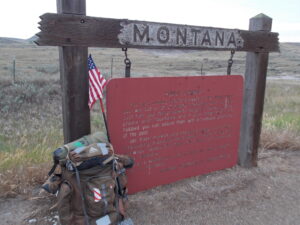
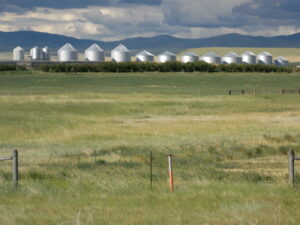
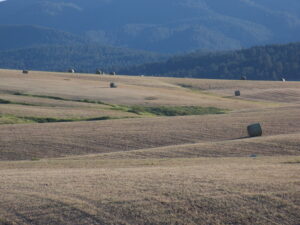
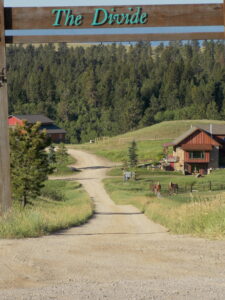
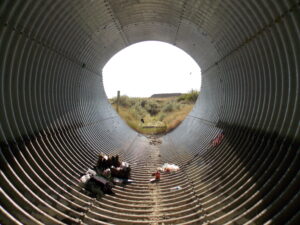
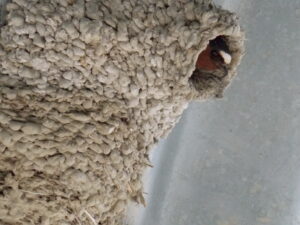
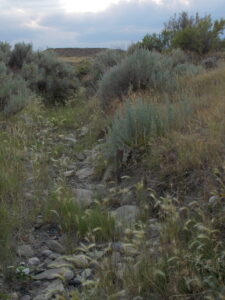
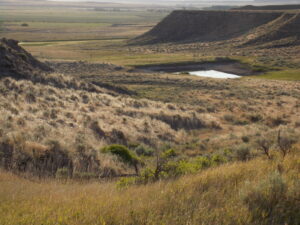
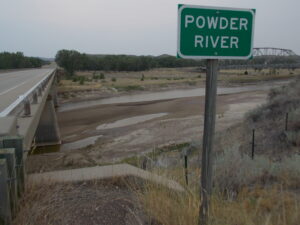
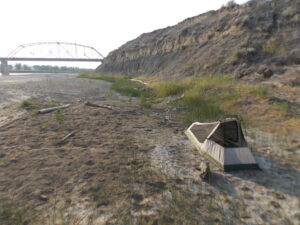
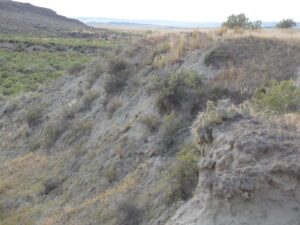
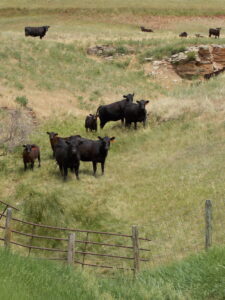
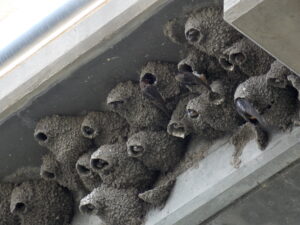
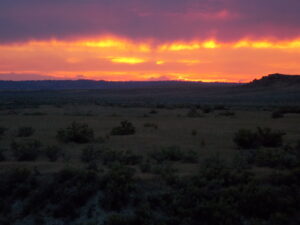
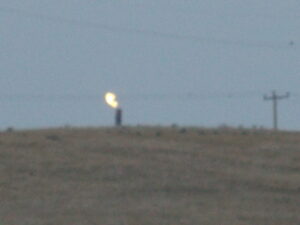
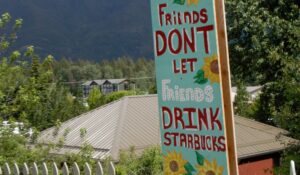
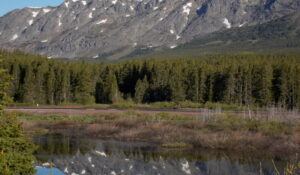
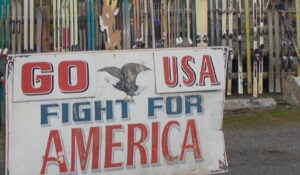
Hello Cedric! After reading your account of the many trials you encountered going through Montana, I wanted to assure that it has been a difficult summer for everyone in the state. I met you along hiway 2 as you walked next to the middle Fork of the Flathead River. I am the Conservancy worker that warned you about bears and food. I am amazed that you made it through Montana in the hottest summer I can recall here. It would dishearten anyone, but you persisted and survived. I will be following your posts until you finish and wish you much better weather and all the supplies you need. You are on a remarkable journey. I really wanted to give you more than advice about bears but didn’t have much with me that day. I’m glad that you met up with some good folks in Montana. I hope that is what you remember most. Press on!